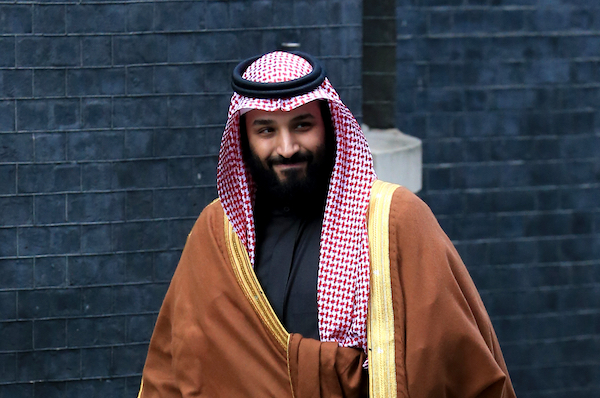Politics
Saudi Arabia’s Crown Prince Says he is No Longer Interested in ‘Pleasing’ the United States

Saudi Arabia’s Crown Prince Mohammed Bin Salman (MbS) is no longer worried about pleasing the United States as his relationships with other global superpowers including China and Russia have strengthened.
America’s adversaries continue to team up against the United States as President Joe Biden turns a blind eye to the growing macro-economic crisis.
On Sunday, Saudi Arabia and other oil rich nations announced that they would be cutting oil production.
“The Organization of the Petroleum Exporting Countries (OPEC), a consortium of the world’s largest oil-producing nations, made the announcement Sunday in a preemptive measure against what it perceived as a future slowdown in demand,” Trending Politics reported on Sunday. “U.S. oil prices surged to nearly $80 a barrel, the largest increase in almost a year.”
According to a new report from The Wall Street Journal, the crown prince is no longer worried about pleasing Washington.
“Prince Mohammed told associates late last year that he was no longer interested in pleasing the U.S., saying he wants something in return for anything he gives Washington, according to people familiar with the conversation,” the Wall Street Journal reports.
The Journal continues:
Officials and other people familiar with Saudi oil policy say Riyadh’s move wasn’t a surprise, as it needs to defend higher prices to pay for massive development projects at home, some of which are so big that the Saudis call them gigaprojects. These include a Red Sea resort the size of Belgium with Maldives-style hotels hovering above the water and a $500 billion futuristic, high-tech city in the desert that is 33 times bigger than New York City.
Farouk Soussa, Middle East and North Africa economist at Goldman Sachs, said Saudi Arabia is less inclined to subordinate its own economic interests to support those of the U.S. than they have been historically.
The revelation out of Saudi Arabia comes just weeks after the crown prince said he does not care what President Biden thinks of him during man interview with The Atlantic.
Ever since Biden took office, the longstanding strategic alliance between Washington and Saudi Arabia, the world’s largest oil exporter, has been put to the test due to Riyadh’s track record on human rights, particularly concerning the Yemen conflict and the killing of Saudi journalist Jamal Khashoggi in 2018.
In independent yet interconnected statements broadcasted by the Saudi state news agency SPA, Prince Mohammed hinted that Riyadh might opt to decrease its investments in the United States.
“Simply, I do not care,” he said in response to a question about what Biden thinks of him.
“We don’t have the right to lecture you in America,” he added. “The same goes the other way.”

